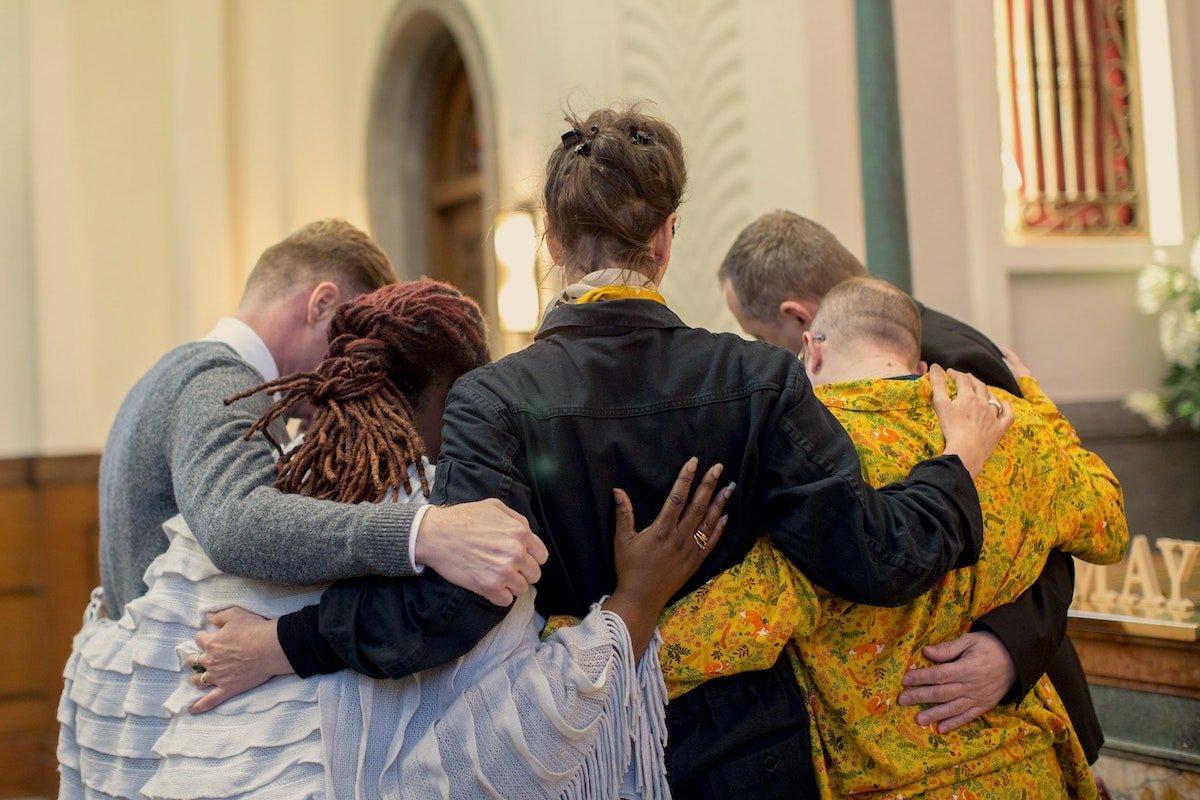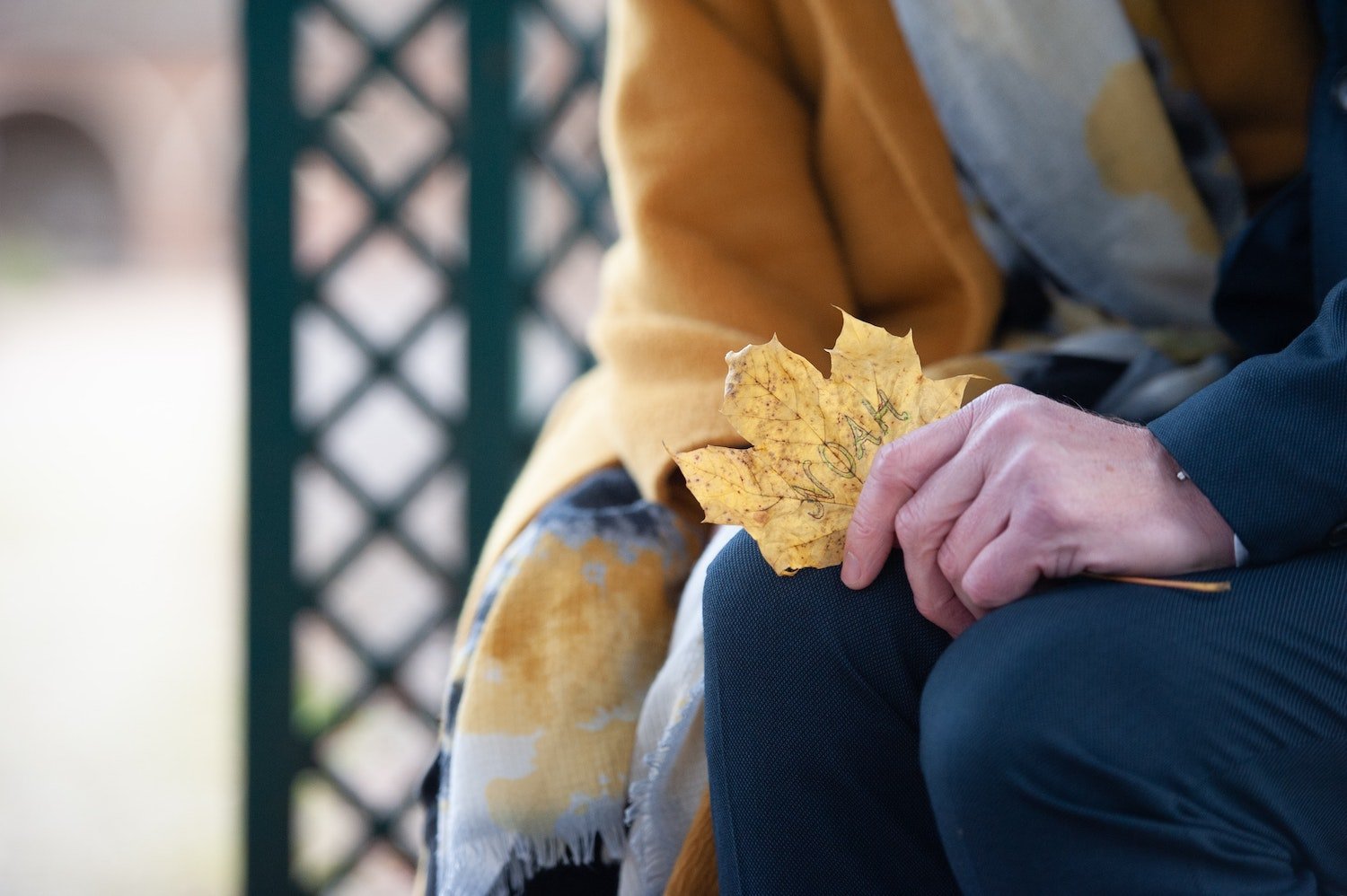Courageous Comfort: 3 Ways the Church Ministers in Grief
This article is part 3 of the series When Grief Comes to Church. We hope it can provide comfort and resources to the individuals who feel grief most acutely and the church who cares for them.
Article 1: Grief and the Individual
Article 2: 4 Additional Griefs—And How to Find Hope Again
Article 3: 3 Ways the Church Ministers in Grief
It’s hard to know what to say to someone who is deeply mourning. I am the first to admit that I shied away from the newly widowed spouse or the parents grieving a child. After all, what do you say? What if they don’t want to talk about it? If I’m honest, I let my fear of doing something wrong keep me away from doing something loving—drawing near to those in grief.
Two years after the death of my eleven-year-old son, Ty, I have a different perspective. I am so glad my church did not shy away from us. Like the courageous firefighters who jumped into the dangerous waters to search for Ty, my church selflessly jumped into the whirling, battering waters of grief with us.
No perfect words exist for the bereaved, but the Church’s outstretched hands may be their lifeline.
Compassion means “to suffer with,” and that’s what my community did. They wept with us. They prayed with us. They watched our kids, brought us countless meals, and paid for funeral costs. They listened and made space for our grief in their busy lives. They told us, “we are with you,” and we knew they meant it.
Sure, no perfect words exist for the bereaved, but outstretched hands may be their lifeline.
The Ministry of the Spirit in All We Do
The Holy Spirit is called the comforter, counselor, and helper, and He undoubtedly ministers to the bereaved in a myriad of merciful ways—through Scripture, nature, solitude, etc. However, His ministry is often most tangibly felt through the people He indwells.
So first, be relieved that God is ultimately the comforter; He is the healer. He knows exactly what the griever needs—the specific truths and appropriate salve to tend to broken hearts. The greatest thing we can do is abide with and listen to the promptings of the Holy Spirit. You may not even personally know the bereaved and may doubt if you should move toward them. But isn’t it the comfort we’ve received from God that we share with others? Perhaps God has specifically equipped you to be an instrument of healing.
Examples in my life
Early on in my grief journey, I felt lost. I didn’t know what “good grief” looked like or how to process my pain. As I was asking the Lord about this issue, the doorbell rang. On the front porch sat Dark Clouds, Deep Mercy: Discovering the Grace of Lament. An old classmate I hadn’t spoken to in years had left a note inside. This book had been most helpful to her in her losses, and she felt led to share it with me. This sweet sister wasn’t a close friend, but the Lord used her gift to answer my heart’s deep and sorrowful cries. Perhaps because we weren’t that close, it felt like a gift straight from the Holy Spirit.
“Pray. Listen. Obey.
Let the Holy Spirit lead you in particular ways to extend the comfort of God.”
Another woman in my church left encouraging notes and gifts on my porch—particularly on anniversary dates and holidays—for a solid year. Another sister in Christ emailed me a prayer every day for a month leading up to the year anniversary of the loss of my son.
I can’t tell you the number of texts sent at just the right time with just the right encouragement—a song, a verse, an article, or just a little note saying, “You are not forgotten,” or “You are loved.”
Countless promptings from the Holy Spirit moved through His people to “pour the love of God into my heart” (Rom. 5:5).
These acts of kindness made my soul feel seen by God and loved down to the details. My heart was torn in two, but somehow—through the love of His people—I knew a force greater than my pain was holding me. I knew the Creator God—the God who brings life from void and beauty from ashes—was carrying me through the ferocious waters of grief.
So I say it again: Pray. Listen. Obey. Let the Holy Spirit lead you in particular ways to extend the comfort of God—a comfort so rich, so profound, that the one who mourns is actually declared “blessed” (Matt. 5:4). As Christ’s body, you hold this holy privilege of joining Christ in His ministry of drawing close to the brokenhearted (Ps. 34:18). This nearness is no small thing. This comfort is as light in the darkest valley, food for the starving, and hope for the desperate. Your kindness probably means more than you will ever know.
1. The Ministry of Silence
The first thing we do to comfort others is to listen to the Holy Spirit. Next, we listen to the bereaved.
Grief is uncomfortable, inconvenient, and may take longer than expected. Well-meaning friends may be tempted to rush it, clean it up, or ignore its jagged edges. You may want to say things like, “But he’s in a better place,” or “God has a plan.” These things may be true, but I encourage you, resist the urge to tidy up tears with a blanket statement.
Job’s friends did good while they sat in dust and ashes with their friend. When they started to talk, however, they rationalized, over-simplified, and even blame Job for his suffering. Instead of being a source of encouragement, their counsel added insult to injury.
“Quiet listening may not feel like much, but it may just be the safe space they need.”
God’s word tells us: “Weep with those who weep” (Rom 12:15).
So, do this. Lament the pain. Grieve the full extent of their loss. Help them grieve the loss as it unfolds throughout the years to follow. Help them name the ways it hurts by giving them a safe place to process their pain out loud. Questions are a good place to start:
How does that make you feel?
How are you….really?
What is this season like for you?
Quiet listening may not feel like much, but it may just be the safe space they need to open the box, feel their emotions, and process their questions, fears, heartache, and regrets. Your questions acknowledge the foreign world they now live in and says, “I love you enough to go to that world with you.”
As you listen, here are a few things you may notice:
Repetitive stories and focus on detail are normal. The bereaved may talk about the same thing over and over again. They may want to relive the day it happened, recounting every detail, all the ways things could have turned out differently. This is their brain in shock. The words, “_____ is dead” does not compute. They may feel like they are outside their body looking in. Talking about it again and again is their way of trying to incorporate the nightmare into their reality.
Grief is tiring. Even if you ask good questions, the person may not open up. Don’t take it personally or assume it means they are doing fine. He or she may just not have the energy or desire to “go there” at that particular moment. Be sensitive to the environment and the timing of your questions as well. A knowing hug may be great in public, but it’s most likely not the best place for a potentially tearful conversation. One of the best ways my friends served me was by coordinating a time to come over and sit with me, while also giving me the freedom to cancel without guilt.
Grief can feel very isolating and overwhelming. One way to help your grieving friend is help them get connected to a grief support group such as Griefshare International. As time moves on and everyone else’s lives continue, the bereaved may feel more and more separated from the rest of the world. A support group can serve as a safe place to process, be with others who understand, and help normalize one’s myriad of conflicting feelings.
“Be sensitive to the environment and the timing of your questions ”
2. The Ministry of Words
Words of remembrance
One of the greatest gifts you can give to the bereaved are memories of their loved one—verbal or written down. If it’s written down, they can easily store this memory and revisit it. Over time, these memories will bring less pain and more joy.
Words of encouragement
Remember, the bereaved may be struggling with varied guilt and regrets. It’s helpful to hear encouragements like: “You were such a good Mom/husband/etc. I loved the way you ________.” Specific encouragements help balance out the tendency to over-focus on failure rather than the relationship as a whole.
Words of comfort
If it’s your first time seeing the bereaved since the death of their loved one, a heartfelt hug and a “I’m so sorry,” or an “I love you,” go a long way. A simple acknowledgment of the loss makes the bereaved feel seen and less alone.
Words of truth
God’s Word has the power to “refresh the soul and give joy to the heart. The commands of the Lord are radiant, giving light to the eyes.” (Psalm 19)
In my dark night, I desperately needed the refreshment, joy, and light that comes with God’s Word. However, in the fog and heaviness of grief, it was hard to know exactly where to turn to in the pages of Scripture.
The resources I received became my companions and wise guides in navigating God’s Word concerning grief and all its complexity—matters about the afterlife, salvation, guilt, hope, healing, etc.
I do not know where I would be without these resources and I cannot recommend them enough.
3. The Ministry of Service
When I think of all the acts of service that our church did for us, all I can say is “wow.”
Our pastors showed up. They walked our foggy minds through the details we needed to think about…and took care of the rest. Our friends showed up. They came with smoothies the day after because they realized we probably couldn’t eat. They brought coffee, Kleenex boxes, and food for visiting family. Meal trains and prayer events were arranged. Friends and family watched and engaged our kids. Others paid for funeral costs and travel expenses for our family to get away. People took care of yard work, dishes, laundry, and countless things done without my awareness. They just took care of things, so we could take care of the wound that immobilized us.
When a friend is in the hospital with a gaping abdominal wound, it’s easy to understand that they cannot fulfill their normal responsibilities. The healing process seems much more tangible. You can see a physical wound getting smaller and new tissue growing. The woundedness that comes with grief is a little trickier.
“They served me by carrying a measure of my load until I had regained strength. ”
Some days, the bereaved may feel relatively “ok.” Other days, the pain is almost unbearable. As time passes, they may be afraid to commit to anything because they’re not sure how they’ll feel.
Personally, my diminished capacity to serve as I nornally would was really hard. On the one hand, I had a renewed clarity for what really mattered. On the other hand, I didn’t feel like I had the energy to give myself to those things.
My people gave me the freedom to ease back into the normal activities of work/ministry without feeling like I had to be 100% to re-engage. Here are some ways you could communicate it:
We understand if some days are hard, and you can’t be here.
We understand that you and your family are still healing. It’s ok if you can’t give that much right now.
We are here to support you.
To give me this freedom often meant others were picking up my slack. They were serving me by carrying a measure of my load until I had regained strength.
Learning to Walk Again
Counselor Brad Hambrick helpfully outlines what gaining strength or signs of healing may look like for the bereaved. Some of these positive signs include increased energy level, the ability to think and make decisions, normalized sleep patterns, the ability to look forward to events again, the ability to use one’s experience to comfort others, the ability to freely worship, a return of a sense of humor (that doesn’t feel irreverent), and the ability to experience peace even in a grief wave.
“In the power of the gospel, let us draw near to the wounded with loving silence, loving words, and loving service.”
As mentioned in the second article, healing does not mean returning to a pre-loss state. It is more similar to the healing after an amputation. It means learning to walk again—in a new way.
So church. Though we all walk with limps to varying degrees, if we walk together and bear one another burdens, we fulfill the law of Christ (Gal. 6:2).
And we can take courage—the law of Christ has set us free from the law of sin and death (Rom. 8:1-2)! So, in the power of the gospel, let us draw near to the wounded with loving silence, loving words, and loving service. Let us jump into the scary, yet holy, waters of grief and worship as we witness the God of Comfort comfort, the God of Endurance strengthen, the God of Hope restore, God our Helper help, God our Shepherd guide, and Jesus, the Wounded Healer, heal.
Liz Williams resides in North Carolina with her husband, Travis, and three children: Zoe, Zac, and Cali. Her oldest, Ty, went to be with Jesus in November 2020. Liz delights in exploring God’s creation, waking up to coffee and the Bible, laughing with friends, discipling women, exercising and writing. Liz holds degrees in Christian Education and Nursing.
We’ll send one succinct weekly email
with the best news, events, and info
for churches in the Houston area.
Photo by The Good Funeral Guide on Unsplash









I am so glad my church did not shy away from us in our grief. Like the courageous firefighters who jumped into dangerous waters to search for my son, my church selflessly jumped into the whirling, battering waters of grief with us.